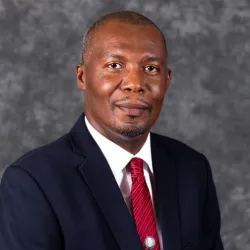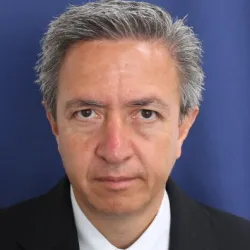Good Practice in Banknote and Currency Management - main page
Good Practice - main page
Good Practice in Banknote and Currency Management
March 22 - 25
Chair: Antti Heinonen, Chairman, Banknote Ethics Initiative and former Director, Banknotes, European Central Bank
- How are currency managers responding to the challenge of digital money?
- What have they learnt from the experience of Covid-19?
- How can central banks improve the environmental, ethical and inclusive proposition of banknotes?
- Where can technology add value to procurement, security and circulation?
These are some of the main challenges facing currency experts at a time of technology-driven change in markets, platforms and policies. In response to the fast-paced evolution in electronic payments they are increasingly using technology to improve the product and services they provide. They know that better technology – as has always been the case with currency management – is the key to staying ahead of the competition.
This course, ‘Good Practice in Banknote and Currency Management’ is designed to equip central bankers to meet these challenges.
Each day will feature three hours of expert-led live content to maximize the opportunity to share and learn. The Course chair will ensure participants have opportunities to network throughout the programme.
Global timezone: 11am-2pm (GMT) | 6am-9am (ET) | 7pm-10pm (SGT)
Good Practice in Banknote and Currency Management agenda
Challenges, opportunities and threats
11:00 – 11:15
Course introduction and welcome
Course introduction session led by the chair
11:00 - 11:15
- Introductions and welcome from the chairperson
- Overview of the training course programme and speakers
- Discussion of participant expectations and areas of particular interest
Klaus Löber is the Chair of the CCP Supervisory Committee (CCP SC) in ESMA, which was established in 2020. His areas of responsibility encompass the tasks attributed by the European Market Infrastructure Regulation (EMIR) to the CCP SC, in particular the enhanced supervisory convergence towards EU CCPs and ensuring a resilient CCP landscape in the EU as well the monitoring and supervision of CCPs established in third countries in view of the risks that they may pose to the EU financial system. He is also chairing the ESMA CCP Policy Committee contributing to the EU Single Rule Book in the area of CCPs.
Prior to this role, Mr Löber was the Head of the Oversight Division of the European Central Bank in charge of the oversight of financial market infrastructures, payments instruments and schemes. Earlier positions include the Head of the Secretariat of the Committee on Payments and Market Infrastructures, the global standard setting body in the area of payments, clearing and settlement as well as positions in the European Commission, Deutsche Bundesbank and private practice.
Mr Löber regularly publishes on financial markets legal, regulatory and infrastructure issues and lectures at universities.
11:15 – 11:45
New challenges across the currency lifecycle
11:15 - 11:45
- The state of the art of currency management in 2021 (and lessons from 2020)
- New roles and responsibilities facing currency managers
- Key forces and dynamics shaping the currency lifecycle
- The impact and implications of disruptive technological innovation
Antti Heinonen has been the chairman of Banknote Ethics Initiative since its inception in 2013. He was the chairman of the Central Bank Counterfeit Deterrence Group between 2008 and 2012 and the Director, Banknotes at the ECB from 1998 until 2008. He chaired the Banknote Committee of the European System of Central Banks for more than 10 years and the Eurosystem Cash Changeover Co-ordination Committee in 2001 and 2002. Prior to joining the ECB he was the chief cashier for the Bank of Finland. He holds degrees in economics and mathematics from the University of Helsinki, and has recently written two books, one on the history of Finland’s markka banknotes, and another on euro banknotes. The latter is also translated in English (The First Euros) and German (Die Ersten Euros).
11:45 – 12:00
Break
15:15 - 15:45
12:00 – 12:45
Digital money: are CBDCs, stablecoins and crypto assets threats or opportunities?
12:00 - 12:45
- Overlaps and differences between privately issued crypto assets and CBDCs
- Understanding the impacts on central banks mandates and responsibilities
- Implications for currency management – short term and longer term
- Discussion: How can currency managers harness technological innovation to compete?
Aleksi Grym is head of fintech at the Bank of Finland. He leads a team that manages a portfolio of projects related to fintech, new payment technologies and digital currencies. He is a member of the Eurosystem's digital euro project steering group. Before joining the Finnish central bank he worked in the consulting and technology investment industry for 15 years in London and Helsinki.
12:45 – 13:00
Break
12:45 - 13:00
13:00 – 13:45
Case study: How has the currency department at the Bank of Israel addressed Covid-19?
13:00 - 13:45
- Assessment of cash demand pre and post Covid-19
- Examples of increased cash usage
- Long term impact of Covid-19 on cash demand
- Case study: steps taken by the Bank of Israel during Covid-19
Amir Safranovich has been with the Bank of Israel since 1997. Mr Safranovich has headed the Cash Management Division in the Currency Department of the Bank of Israel since 2003.
He is responsible for determining and implementing cash management policy in Israel and among other things, he is responsible for the supervision of cash centre, the regulation of the cash market, the contingency plan for cash, the banknotes quality standards, the reduction of counterfeits in circulation and the BOI cash centres operation.
Previous to this appointment, Mr Safranovich worked in the Banking Supervision Department in the Bank-Customer Relations Unit (1997-2003). He has a Master of Science degree in Economics from the Technion - Israel Institute of Technology, and an MBA from Bar Ilan University.
Good practice in the currency lifecycle
11:00 – 11:45
Substrate choice: security, acceptability, economy and longevity
11:00 - 11:45
- Overview of different substrate types and new developments
- The role of the substrate in a new series planning, design and introduction
- Frameworks and indicators for the evaluation of a new substrate
- Discussion: what should a central bank expect from a banknote substrate?
Mr Rosbert Humphrey has been employed at the Eastern Caribbean Central Bank (ECCB) for the past twenty two (22) years, twenty one (21) of which have been in the Currency Management Department, where he is currently the Director. His main duties include Forecasting, Ordering and Monitoring of currency stocks, and general management of the Currency Management Department. He is a certified Banknote Forensic Expert Witness and a Trainer in the delivery of Expert Witness Training in the Eastern Caribbean countries. Rosbert has been a presenter and discussant at several banknote and currency seminars, workshops and training courses.
Rosbert is a native of St Vincent and the Grenadines, and holds a Bachelors of Science Degree in Economics and Accounting and a Masters of Science Degree in Finance.
11:45 – 12:00
Break
15:15 - 15:45
12:00 – 12:45
Good practice in planning and introducing a new banknote series
12:00 - 12:45
- Overview of the decision-making process for a new banknote series
- Lessons learned from designing and introducing a new series
- Strategies for effective engagement and communication with the public
- Discussion: new notes – what works and what doesn’t?
Toby Davies is Head of Notes Operations at the Bank of England with responsibility for the production and distribution of Bank of England banknotes, its anti-counterfeiting strategy and the regime to back Scottish & Northern Irish banknotes. Previously, he was responsible for the operation of the Bank’s Real-Time Gross Settlement (RTGS) payment system and its securities operations. Toby has also worked at Euroclear UK and Lloyd’s of London.
12:45 – 13:00
Break
12:45 - 13:00
13:00 – 13:45
Cash circulation, distribution and destruction: what to outsource, when and how?
13:00 - 13:45
- Overview of logistical realities for circulation and distribution of cash
- Tips for innovation in cash processing functions
- Examples of successfully implemented cost saving strategies
- Discussion: what to outsource, when and how?
Leif Veggum joined Norges Bank in 1986 and has worked in the Cashier’s Department since 2000, becoming Director of the unit in 2017.
Leif has played a central part in the changes that Norges Bank implemented in the cash area in order to increase the overall efficiency in cash distribution. This included both redefining Norges Bank’s role and responsibilities, and reorganizing the services and tasks for which the central bank is responsible.
Prior to that, Leif served in Norges Bank’s Financial Markets Department and Payment Systems Department.
Technological foundations and threats
11:00 – 11:45
Banknote analytics: building blocks and technology foundations
11:00 - 11:45
- Utilising cash flow data to maximize currency lifecycle
- Pathways for making the cash cycle more cost-efficient and sustainable
- Understanding migration patterns of currency
- Practical use of banknote serial-number reading
- Discussion: how can you add value in tracking migration?
Lee has been a member of the cash community for nearly 30 years, 20 as the Managing Director of 7 Layer Solutions. He has consulted on, conceived, functionally designed and implemented solutions for central banks, commercial banks, CITs and retailers throughout the world.
7 Layer Solutions are a specialist software development company. Formed 20 years ago they have conducted projects globally across the entire cash logistics supply chain. Their developments are deployed across thousands of sites but frequently as the company behind the big name, they are unseen experts in cash processing software.
11:45 – 12:00
Break
15:15 - 15:45
12:00 – 12:45
Counterfeiting technology: what are the major threats?
12:00 - 12:45
- Overview of banknotes and security printing trends
- Practicalities faced in designing and issuing new notes
- The art of anti-counterfeiting: resilience testing and feature selection for future series
- Dealing with counterfeit notes: detection and impounding
Martin Münd was born in Mannheim, Germany in 1964. He started printing at the age of 12 in a voluntary workshop at school and went on to establish his own little print shop as a side business in the cellar of his parents‘ house. He studied printing technology at the “Fachhochschule für Druck” in Stuttgart, Germany and graduated as a printing engineer in 1995. For four years he was employed in the process engineering department of a major manufacturer of electric appliances as an expert on printing and marking technologies. In 1999 he followed his life long passion and fascination for banknotes by joining the counterfeit money department of Deutsche Bundesbank. In 2001 he moved on to the European Central Bank and has since been working at the ECB’s Counterfeit Analysis Centre (CAC) as an expert on counterfeit banknotes.
12:45 – 13:00
Break
12:45 - 13:00
13:00 – 13:45
New realities of public engagement
13:00 - 13:45
- Recognising the importance of effective engagement of a number of key stakeholders
- Challenges and opportunities of engaging with stakeholders and the general public
- Tips for understanding growth and changes to communication tools to engage the public
- Discussion: what are the best and available channels to engage the public?
Lisa Cronier-Gabel joined the Currency Department of the Bank of Canada in September 2016 as the Director, External Stakeholder Management. She is responsible for building and managing critical business relationships with external partners to ensure confidence and pride in Canada’s bank notes as well as delivering various initiatives related to bank note development and issuance. Prior to joining the Bank, Lisa spent 14 years at Immigration, Refugee and Citizenship Canada (IRCC) managing various programs, most notably the Citizenship program.
Towards great inclusion and sustainability
11:00 – 11:45
Financial inclusion and the future of cash
11:00 - 11:45
- Use of cash as a means of payments
- The digital gap and the risk of financial exclusion
- Access to cash infrastructure
- Cash acceptance
- Access to cash vulnerability
- Initiatives to guarantee financial inclusion
Diana Posada works at the Bank of Spain as a senior economist. She joined the banknotes directorate in 2019 and since then her research has focused on access to cash, financial inclusion or the use of payment methods among others. She has been part of different workstreams on access to cash of the Eurosystem. Additionally, she is a member of the financial exclusion advisory group of the Bank of Spain.
11:45 – 12:00
Break
15:15 - 15:45
12:00 – 12:45
Environmental and sustainability: where can currency managers contribute?
12:00 - 12:45
- Overview of the environmental impact of banknotes
- Strategies to reduce the carbon footprint of banknote production
- Examples of production, circulation and destruction of greener banknotes
- Discussion: how can central banks contribute in greening production of banknotes?
Mr. Alejandro Alegre is 56 years old, he is a lawyer, worked during 14 years at Civilian Intelligence Services in México. He was General Director of Planning Center for Drug Control, the Intelligence Agency of the Office of the Mexican Attorney General and also General Director of the National Security Intelligence Center (CISEN).
Since 2001 he has been working in Bank of Mexico, where he has been Advisor to the Board of Governors, Security Director, General Director of Planning and Budget and since 2011 he is General Director of Currency Issuance and Main Cashier.
12:45 – 13:00
Break
12:45 - 13:00
13:00 – 13:30
Closing remarks and delegate action plans
Concluding session led by the chair
13:00 - 13:30
- Summary of the course
- Discussion of the observed trends and case studies
- Application of learning points in the delegates’ home organisations
- Preparation of action points
Central Banking’s Post Training is a chair-led forum where participants can bring further questions or discussion points to group, after the live content and self-paced learning elements. What has worked, and what has not? Post Training focuses on questions that may have arisen since returning, the challenges of implementation and the setting of medium-term goals. Participants are encouraged to bring a short presentation, or questions on a particular topic, to gain the most from the discussions with peers.
15:00 – 16:00
Implementation Workshop
11:00 - 12:00
Benefits of attending the Implementation Workshop:
- Developments in the area since the live content sessions, including new resource material
- Questions arising since returning to the central bank
- Challenges of implementation: where are the roadblocks?
- Medium-term goals: what is realistic?
- Establishment of group network to keep in touch with peers and share best practices
Learning outcomes
By the end of the training course, participants will be able to:
- Understand how currency managers are responding to the digital money challenges
- Contribute to environmental, sustainable and ethical practices in currency management
- Use data and analytics to understand banknote management
- Understand counterfeiting technology and its benefits and pitfalls
- Assess cash demand and the long term effects of covid-19
Chair

Antti Heinonen
Chairman
Banknote Ethics Initiative
Antti Heinonen has been the chairman of Banknote Ethics Initiative since its inception in 2013. He was the chairman of the Central Bank Counterfeit Deterrence Group between 2008 and 2012 and the Director, Banknotes at the ECB from 1998 until 2008. He chaired the Banknote Committee of the European System of Central Banks for more than 10 years and the Eurosystem Cash Changeover Co-ordination Committee in 2001 and 2002. Prior to joining the ECB he was the chief cashier for the Bank of Finland. He holds degrees in economics and mathematics from the University of Helsinki, and has recently written two books, one on the history of Finland’s markka banknotes, and another on euro banknotes. The latter is also translated in English (The First Euros) and German (Die Ersten Euros).










